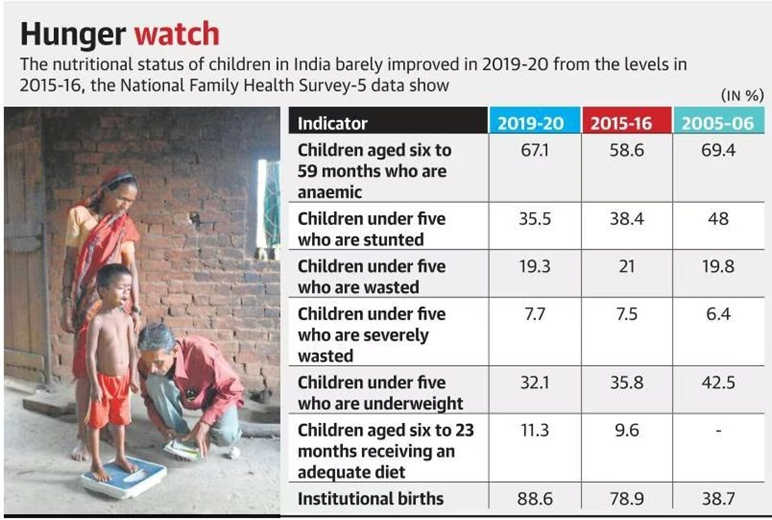CURRENT AFFAIRS
Get the most updated and recent current affair content on Padhaikaro.com
National Family and Health Survey
- IAS NEXT, Lucknow
- 26, Nov 2021

Reference News:
The National Family and Health Survey (NFHS)-5, the most comprehensive survey on socio-economic and health indicators in the country, has been released.
- The previous four rounds of the NFHS were conducted in 1992-93, 1998-99, 2005-06 and 2015-16.
Highlights of the Report:
- Women outnumber men, fertility has decreased, and India is getting older: There were 1,020 women for 1000 men in the country in 2019-2021. This is the highest sex ratio for any NFHS survey as well as since the first modern synchronous census conducted in 1881.
- The Total Fertility Rate (TFR) has also come down below the threshold at which the population is expected to replace itself from one generation to next. TFR was 2 in 2019-2021, just below the replacement fertility rate of 2.1.
- Children’s nutrition improved but at a slower pace: The share of stunted (low height for age), wasted (low weight for height), and underweight (low weight for age) children have all come down since the last NFHS conducted in 2015-16. However, the share of severely wasted children has not, nor has the share of overweight (high weight for height) or anaemic children.
- India might be food secure, but nutrition is a problem for adults too: Though India might have achieved food security, 60% of Indians cannot afford nutritious diets.

About NFHS survey:
NFHS is a large-scale, multi-round survey conducted in a representative sample of households throughout India.
- All NFHSs have been conducted under the stewardship of the Ministry of Health and Family Welfare, Government of India, with the International Institute for Population Sciences (IIPS) Mumbai, serving as the nodal agency.
NFHS-5 includes some new focal areas, such as death registration, pre-school education, expanded domains of child immunisation, components of micro-nutrients to children, menstrual hygiene, expanded age ranges for measuring hypertension and diabetes among all aged 15 years and above, which will give requisite input for strengthening existing programmes and evolving new strategies for policy intervention.
Every National Family Health Survey (NFHS) has two specific goals to fulfill. They are:
- To provide essential data needed by the Ministry of Health and Family Welfare and other agencies for informed decision making and policy and programme intervention purposes.
- To provide insight regarding important emerging health and family welfare issues.